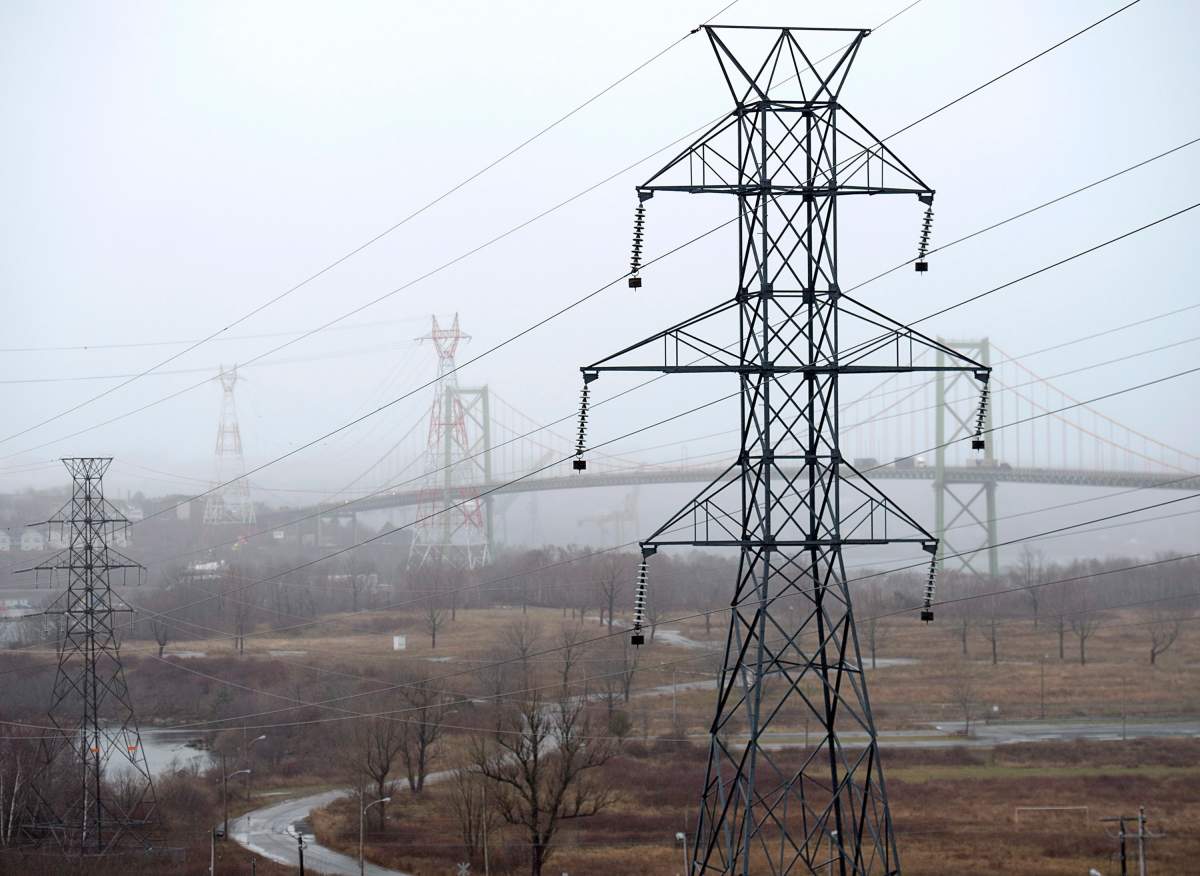Residents of a small community in Antigonish County say they’re in a fight with Nova Scotia Power — over power surge damage that the utility company says was unpreventable and beyond its control.

Steven Van de Sande has a cottage in Lochaber, about half an hour outside of Antigonish.
During an intense snow storm Nov. 29, a power surge caused $6,500 worth of damage to two heat pumps. It’s believed heavy snow on a main transmission line caused it to make contact with local power lines, which caused the surge.
READ MORE: Winter storm knocks out power for half of Nova Scotia Power’s customers, prompting criticism
He says his family is lucky the surge didn’t spark a fire.
“We could have lost a lot more. We were just lucky enough to check on the place because the heat pumps are set that if there is ever a power outage, when the power comes back on, they turn back on.”

In total, the storm knocked out power to nearly 250,000 customers across the province at one point that morning.

Get breaking National news
At the time, the utility, which is owned by Halifax-based Emera Inc., said high wind and heavy snow pulled down one of four high-voltage transmission lines that carry electricity from power generation plants in Cape Breton to the Nova Scotia mainland.
Nova Scotia Power CEO Karen Hutt said the remaining three lines could have handled the load, but the sagging wires went offline when they started touching each other.
Van de Sande’s neighbour, Senn Martin, also experienced a surge at his home. The part-time farmer says the boiler in his art studio and barn was damaged and will cost about $4,000 to replace.
He questions why the transmission lines are designed and maintained in such a way that the surges were made possible.
“The issue is that this could happen again,” he said. “I think there’s a serious design flaw here.”
Nova Scotia Power sent investigators to the area to look into half a dozen damage complaints, however, it concluded it was not responsible for the damage and will not be compensating homeowners.
In an email, spokesperson Tiffany Chase says when equipment damage is caused by “weather-related outages, wildlife, a motor vehicle accident, or other causes beyond our control, we are not liable.”
“Following the storm and associated transmission equipment damage that occurred on November 29, we have processed six claims from customers in the Antigonish area for damaged equipment,” she wrote.
“These claims were investigated and denied as the investigation confirmed that heavy snow and ice load on power lines caused damage and voltage surges for some customers that could not have been prevented.”
WATCH: Storm knocks out power for thousands in Nova Scotia

But that decision doesn’t sit well with the neighbours, who are now facing insurance deductibles and higher rates.
“It’s a very poor design,” said Van de Sande. “Absolutely I could see if it was poles were broken off, maybe trees fell on lines … but in this case, they shoved a lot of power through our lines and we’re lucky we didn’t lose our homes over this.”
Chase says the utility invests millions of dollars to maintain and upgrade equipment.
“However, there are times when equipment fails due to harsh weather conditions or other factors beyond our control, which can result power surges that may result in damage to household equipment,” she wrote.
Van de Sande says he and his neighbours are considering taking the matter to small claims court after the holidays.








Comments
Want to discuss? Please read our Commenting Policy first.